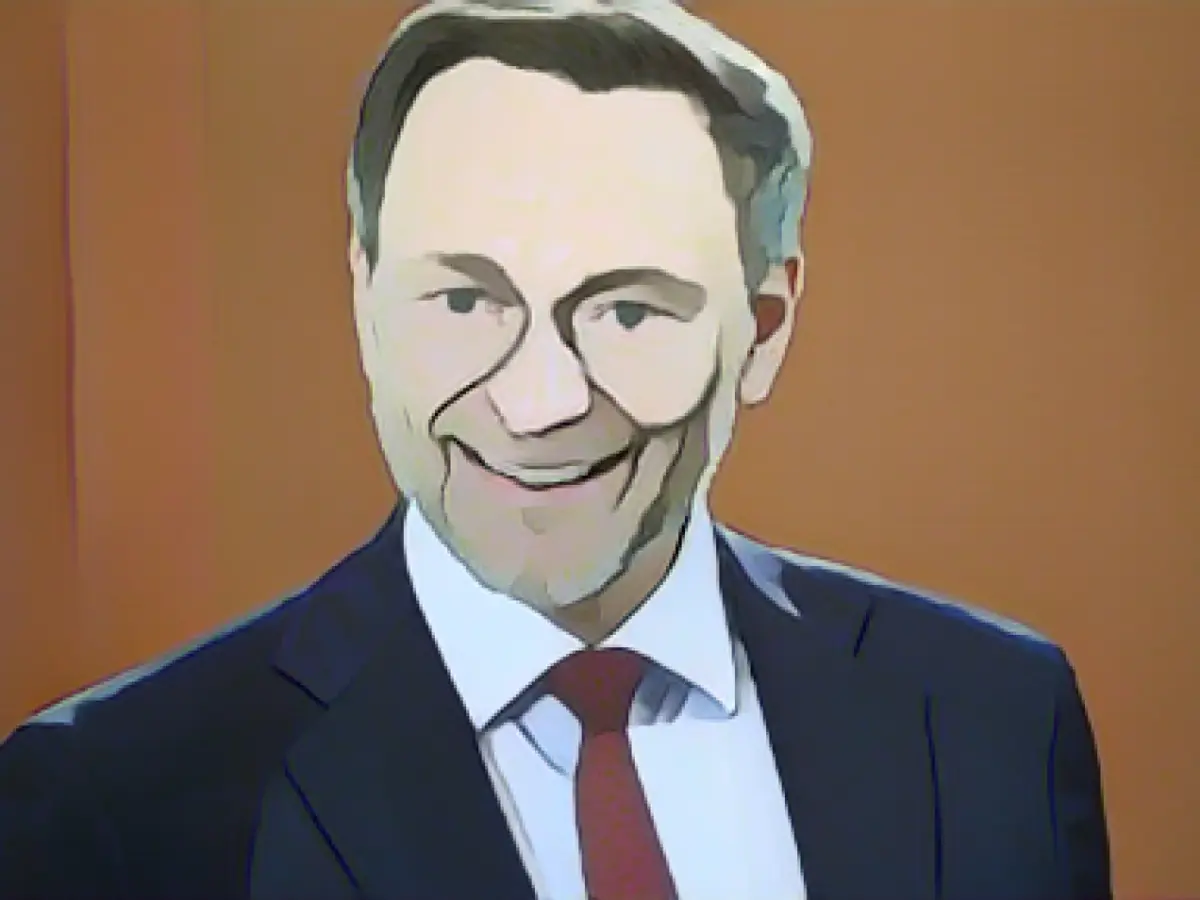Lindner wants to partially reform the debt brake in the coming year
The calculation of the economic component is to be adapted to the "current state of economic research", explained Lindner. This will "change the range of fluctuation". Over several years, however, this will not increase the potential debt: "Because the greater leeway in the downturn will be recouped in the upturn."
The economic component states that taking out new loans is generally permitted in bad economic times, but that these must be repaid in better times. The amount of permitted net borrowing is calculated using special formulas.
No amendment to the Basic Law and therefore no two-thirds majority in the Bundestag and Bundesrat is required to adjust the economic component. As only the implementing laws of the debt brake need to be amended for this reform, the majority of the coalition of the traffic light coalition is sufficient.
On Friday, the Bundestag retroactively suspended the debt brake for 2023 and thus for the fourth year in a row. The traffic light coalition justified the measure with the consequences of the war in Ukraine for the energy markets and the Ahr valley flood. However, the suspension of the debt brake is a direct consequence of the Federal Constitutional Court's budget ruling in November, which made a supplementary budget necessary for 2023.
The Karlsruhe ruling led to weeks of tough negotiations in the coalition government over the 2024 budget, for which a funding gap of 17 billion euros had to be filled. The coalition finally reached a compromise on Wednesday, according to which the gap is to be closed through a bundle of measures ranging from savings and tax increases to subsidy cuts.
The debt brake, on the other hand, is to be adhered to again next year as far as possible. However, Federal Chancellor Olaf Scholz (SPD) has not ruled out a renewed suspension should Ukraine 's military or financial situation deteriorate significantly.
The debt brake has been enshrined in the Basic Law since 2011. It obliges the federal and state governments to balance their budgets "in principle without income from loans". However, it is permissible to suspend the debt brake "in the event of natural disasters or extraordinary emergencies that are beyond the control of the state".
In the interview, Lindner expressed his openness to withdrawing the planned removal of the agricultural diesel subsidy, which was controversial within the coalition, and replacing it with other cuts. "To be clear: I am not a friend of the burden on agricultural businesses," he said. The issue will therefore have to be discussed within the government and coalition. "I am open to alternatives," emphasized the FDP chairman.
The abolition of the agricultural diesel subsidy agreed as part of the budget compromise of the traffic light coalition is causing great resentment among those affected. The German Farmers' Association (DBV) has announced a demonstration at the Brandenburg Gate in Berlin on Monday.
Jens Spahn, deputy leader of the CDU parliamentary group, accused the coalition of burdening farmers, commuters, small and medium-sized incomes in particular with its draft budget, which are already the hardest hit by record inflation. "This is anti-social and will further increase frustration in the country," Spahn told the Neue Osnabrücker Zeitung newspaper.
The CDU politician predicted that the "budget chaos" would cost Germany half a percent of growth next year. "The first quarter of next year will be terrible for the German economy."
Read also:
- This will change in December
- German activists speak out in Dubai on suffering in Israel and the Gaza Strip
- Despite UN vote: fighting between Israel and Hamas in the Gaza Strip continues
- Nuclear fusion - hype or solution to energy problems?
- Christian Lindner, the FDP chairman, wants to partially reform the debt brake in the coming year, adjusting the economic component's calculation based on current economic research.
- The Federal Council will not need a two-thirds majority in the Bundestag to approve this debt brake reform as only the implementing laws need amendments.
- The Bundestag suspended the debt brake retroactively for 2023 due to Ukraine's war consequences and the Ahr valley flood, but generally plans to adhere to it again next year.
- Lindner also expressed openness to replacing the controversial agricultural diesel subsidy removal with other cuts, acknowledging his opposition to the burden on agricultural businesses.
- The CDU politician, Jens Spahn, accused the coalition of burdening farmers and small-medium incomes with its draft budget, arguing that it will further increase frustration in the country and potentially cost Germany half a percent of growth next year.
- Editorial network Germany reported that Ukraine's military or financial situation deteriorating significantly could lead Federal Chancellor Olaf Scholz (SPD) to consider renewing the suspension of the debt brake.
- The debate over the agricultural diesel subsidy's abolition has led to considerable resentment within those affected, with the German Farmers' Association planning a demonstration at the Brandenburg Gate in Berlin.
Source: www.stern.de







